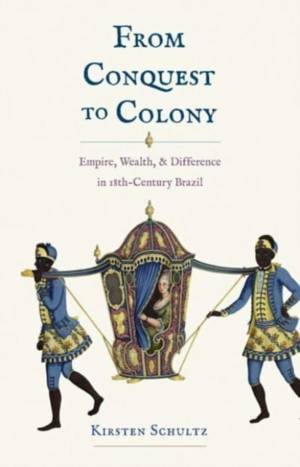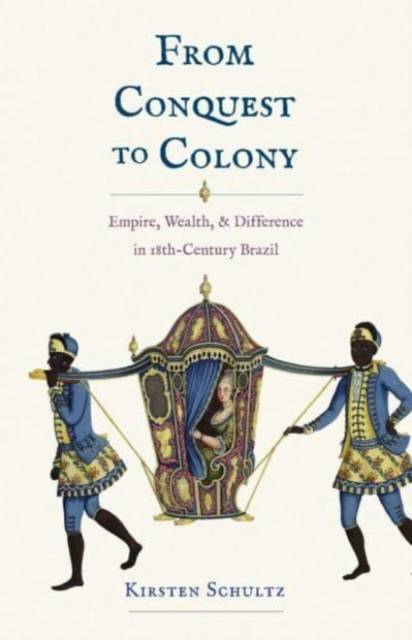
Bedankt voor het vertrouwen het afgelopen jaar! Om jou te bedanken bieden we GRATIS verzending aan op alles gedurende de hele maand januari.
- Afhalen na 1 uur in een winkel met voorraad
- Gratis thuislevering in België
- Ruim aanbod met 7 miljoen producten
Bedankt voor het vertrouwen het afgelopen jaar! Om jou te bedanken bieden we GRATIS verzending aan op alles gedurende de hele maand januari.
- Afhalen na 1 uur in een winkel met voorraad
- Gratis thuislevering in België
- Ruim aanbod met 7 miljoen producten
Zoeken
From Conquest to Colony
Empire, Wealth, and Difference in Eighteenth-Century Brazil
Kirsten Schultz
Hardcover | Engels
€ 67,95
+ 135 punten
Omschrijving
A new history of Brazil's eighteenth century that foregrounds debates about wealth, difference, and governance Transformations in Portugal and Brazil followed the discovery of gold in Brazil's hinterland and the hinterland's subsequent settlement. Although earlier conquests and evangelizations had incorporated new lands and peoples into the monarchy, royal officials now argued that the extraction of gold and the imperatives of rivalry and commerce demanded new approaches to governance to ensure that Brazil's wealth flowed to Portugal and into imperial networks of exchange. Using archival records of royal and local administrations, as well as contemporary print culture, Kirsten Schultz shows how the eighteenth-century Portuguese crown came to define and defend Brazil as a "colony" that would reinvigorate Portuguese power. Making Brazil a colony entailed reckoning with dynamic societies that encompassed Indigenous peoples, Africans, and Europeans; the free and the enslaved; the wealthy and the poor. It also involved regulating social relations defined by legal status, ancestry, labor, and wealth to ensure that Portuguese America complemented and supported, rather than reproduced, metropolitan ways of producing and consuming wealth.
Specificaties
Betrokkenen
- Auteur(s):
- Uitgeverij:
Inhoud
- Aantal bladzijden:
- 352
- Taal:
- Engels
Eigenschappen
- Productcode (EAN):
- 9780300251401
- Verschijningsdatum:
- 1/08/2023
- Uitvoering:
- Hardcover
- Formaat:
- Genaaid
- Afmetingen:
- 156 mm x 235 mm
- Gewicht:
- 638 g

Alleen bij Standaard Boekhandel
+ 135 punten op je klantenkaart van Standaard Boekhandel
Beoordelingen
We publiceren alleen reviews die voldoen aan de voorwaarden voor reviews. Bekijk onze voorwaarden voor reviews.












